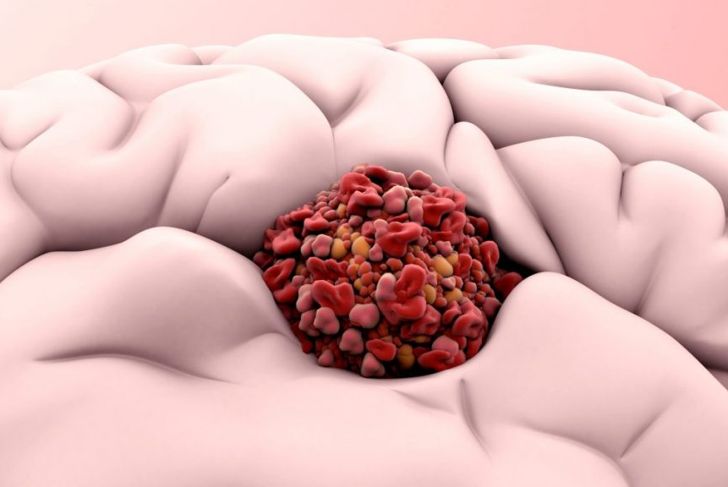Defining lymphoma requires the understanding of the importance of the lymph system in the human body. The lymphatic system is a complex structure composed of nerve vessels which drain unwanted tissues from the bloodstream to keep it healthy and functioning optimally. This system includes the thymus, lymph nodes, spleen, and bone marrow. Lymphoma is a type of cancer which begins attacking the white blood cells or lymphocytes. These lymphocytes divide abnormally and quickly resulting in the development of one of the two types of lymphoma: Non-Hodgkins, and Hodgkin’s lymphoma.
The Difference Between Lymphoma and Leukemia
Many people often confuse medical conditions with similar sounding names and symptoms. Leukemia and lymphoma are often mistaken for one another, but the disease develops differently for each type of cancer. Leukemia and lymphoma develop in differing cellular bodies. In lymphoma, the illness originates with the lymphocytes. The source of this cancer is the fundamentally corrupted white blood cells. Leukemia begins in the blood, building cancerous cells inside of the blood marrow of your bones. Lymphoma is also distinct from the disease lymphedema which is an illness where fluid in the body and lymph system is causing distress due to damage or an immovable blockage.
Systematic Versus Local Lymphoma
Lymphoma can occur in particular parts of your body where the lymph system is in distress, like in the chest, stomach, skin, or the brain and nervous system. This type of cancer may also be systematic which means the disease has spread from one section of the lymphatic system into the rest of the lymph’s facilities throughout your body. Systematic lymphoma is rare, and this type of cancer responds well to a variety of treatments.
Symptoms
It may be difficult to tell the difference between lymphoma and other conditions because this type of cancer shares symptoms with a variety of other illnesses. Someone with lymphoma will have a compromised immune system, and they’ll experience trouble fighting off frequent infections and illnesses, like a cold or flu. Many people with lymphoma experience episodes of intense itching, particularly during hotter weather. Swollen lymph nodes are common. The person may encounter suspicious weight loss without any reduction in caloric intake or added physical activity. Night sweats, chronic fatigue, and fever are all commonly reported symptoms of individuals with lymphoma.
Potential Causes of Lymphoma
Medical science has yet to define what causes lymphoma precisely. Evidence supports that a definite diagnosis of a close, blood relative diagnosed with this cancer, then you’re more likely to contract lymphoma. Individuals who have had cancer in the past and underwent radiation or chemotherapy may develop this type of cancer. Exposure to dangerous pesticides, the Epstein-Barr virus, Hepatitis C, and human T-cell leukemia and lymphoma (HTLV-1) all carry components which may result in lymphoma later in life.
Skin Lymphoma
Skin lymphoma is localized cancer which means it affects a specific area like the surface of the skin. Lymphoma of the skin is often mistaken for psoriasis or eczema due to the similar symptoms and visual indicators. Symptoms of skin lymphoma include level, red splotches spread across the skin, elevate plaques with a scaly texture on the skin’s surface, and lumps which may be painful.
Brain and Nervous System Lymphoma
The localized and systemic presence of lymphoma in the brain and nervous system aren’t a common illness. However, symptoms of this form of cancer do cause significant interruptions in the life of a person with the disease. Cognitive impairment is a hallmark of lymphoma in the brain and nervous system. Often referred to as ‘chemo brain,’ the individual doesn’t have to have had chemotherapy to experience changes in their thinking patterns, memory loss, and confusion. Sight problems, seizures, numb and weak extremities, and dizziness are also frequently reported systems of a brain and nervous system lymphoma.
Lymphoma in the Chest
Swollen lymph nodes cause pressure on the airways which restrict the blood vessels and causing the individual to experience a chronic cough, discomfort in their chest, and difficulty breathing. The build-up of fluid in the lungs, medically known as pleural effusion, negatively impacts the health of the lymph nodes and surrounding tissue.
Stomach Lymphoma
It’s easy to mistake the symptoms of localized lymphatic cancer of the stomach with milder conditions like gastritis and diarrhea. However, an individual with stomach lymphoma will experience more severe gastritis due to the inflammation of the stomach’s lining. Pain, bleeding, constipation, diarrhea, and feelings of pressure in the abdomen and pelvis are all indicators of this type of cancer. Ascites may develop. Ascites describes an accumulation of fluid in the gut which can cause swelling and discomfort.
When to See a Physician
Discomfort and pain are telltale signs that your body is struggling. Don’t wait until you’re in agony before seeking the advice of a medical professional. Lymphoma is a highly treatable condition with a high success rate of survival. Prevention is vital in the form of a healthy lifestyle with a focus on whole foods, a healthy diet, and plenty of fun activities. Include regular checkups with your general practitioner and don’t be afraid of your diagnosis, medical innovations are growing every day to treat many different types of cancer.

 Home
Home Health
Health Diet & Nutrition
Diet & Nutrition Living Well
Living Well More
More



















